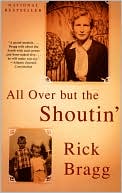Category Books
- Fiction Books & Literature
- Graphic Novels
- Horror
- Mystery & Crime
- Poetry
- Romance Books
- Science Fiction & Fantasy
- Thrillers
- Westerns
- Ages 0-2
- Ages 3-5
- Ages 6-8
- Ages 9-12
- Teens
- Children's Books
- African Americans
- Antiques & Collectibles
- Art, Architecture & Photography
- Bibles & Bible Studies
- Biography
- Business Books
- Christianity
- Computer Books & Technology Books
- Cookbooks, Food & Wine
- Crafts & Hobbies Books
- Education & Teaching
- Engineering
- Entertainment
- Foreign Languages
- Game Books
- Gay & Lesbian
- Health Books, Diet & Fitness Books
- History
- Home & Garden
- Humor Books
- Judaism & Judaica
- Law
- Medical Books
- New Age & Spirituality
- Nonfiction
- Parenting & Family
- Pets
- Philosophy
- Political Books & Current Events Books
- Psychology & Psychotherapy
- Reference
- Religion Books
- Science & Nature
- Self Improvement
- Sex & Relationships
- Social Sciences
- Sports & Adventure
- Study Guides & Test Prep
- Travel
- True Crime
- Weddings
- Women's Studies
All Over but the Shoutin' » (Reprint)

Authors: Rick Bragg
ISBN-13: 9780679774020, ISBN-10: 0679774025
Format: Paperback
Publisher: Knopf Doubleday Publishing Group
Date Published: September 1998
Edition: Reprint
Author Biography: Rick Bragg
A Pulitzer Prize-winning reporter formerly with The New York Times, Rick Bragg hit the bestseller charts with his first book, All Over but the Shoutin , his account of breaking free from the poverty of his youth and finding success at the pinnacle of American journalism.
Book Synopsis
When childhood is complicated by poverty and an abusive, alcoholic father, it vecomes focused on survival. Were it not for the dedication and strength of his mother, Rick Bragg may have never left northeast Alabama and become a Pulitzer Prize-winning reporter. His memoir captures the essence of the South, explores the bonds and responsibilities of family, and, in the end, celebrates his own coming-of-age.
Stephanie Zacharek
There's one thing for sure about the life story of New York Times national correspondent and Pulitzer Prize winner Rick Bragg, as he tells it in this angry memoir: He hasn't had it easy. All Over but the Shoutin' details a childhood spent dirt-poor and fatherless in Alabama, protected by a loving mother who sacrificed everything for her children. It's the story of a have-not, resentful of the haves, who overcomes crushing limitations to become a newspaper reporter and who eventually scrambles his way into a job at what he calls "the temple" of his profession, the New York Times. In the end he triumphs, buying his mother the decent house she's always wanted -- with cash.
It's a tough story all right -- too bad that from the first page you can hear Bragg, in the measured spit-and-polish prose newspapermen use when they're being sensitive, milking it for all it's worth. The novelist Lee Smith, and Dolly Parton (in a number like her "Coat of Many Colors"), understand the power of understatement when it comes to conveying the heartbreak of poverty, and that's what makes their work so rich. But Bragg's litany of major bummers reads like a bid for sympathy. It's as if he believes that piled-on layers of hardship and woe are likely to wrench that many more tears out of us, as if we should be wowed by the sheer bulk and weight of his experiences.
He recalls how his mother "scraped together money for my high school class ring, even though her toes poked out of her old sneakers and she was wearing clothes from the Salvation Army bin in the parking lot of the A&P. It was not real gold, that ring, just some kind of fake, shiny metal crowned with a lump of red glass, but I was proud of it ... If the sunlight caught it just right, it looked almost real." In case that reference to his mother's holey sneakers slips by you the first time, Bragg mentions them at least twice more during the course of the book.
What makes All Over but the Shoutin' truly annoying, though, are Bragg's rooster-size ego and his sanctimoniousness about his profession. Of course, all journalists have big egos -- it comes with the territory. And on some level, you can't blame Bragg for being proud that he was able to crack the stuffy establishment that is the New York Times. But after he's mentioned his numerous journalism awards for the third time, and after you've caught onto his trick of sprinkling down-home cracker words like "ain't" amid his crisp, crafty Times-style prose, the whole thing starts to smell like yesterday's catfish. Bragg tells how he got a promotion at one of his pre-Times newspaper jobs by purposely "overwriting" a story about a chicken that fought off a bobcat. "The moral, I suppose, was this: Do not, on purpose, write a bunch of overwritten crap if it looks so much like the overwritten crap you usually write that the editors think you have merely reached new heights in your craft." Bragg thinks he's making a funny at his own expense, but by the time you read those words, a good two-thirds of the way through the book, you may wonder if the joke is really on you. -- Salon
Table of Contents
Subjects
 News & Media
News & Media  Journalists - News & Media Biography
Journalists - News & Media BiographyBiography
 All Biography
All Biography  News & Media Biography
News & Media BiographyEntertainment
 Media
Media  Journalism
JournalismNonfiction
 Social Sciences
Social Sciences  Media & Communications
Media & CommunicationsScience & Nature
 Social Sciences
Social Sciences  Media & Communications
Media & CommunicationsSocial Sciences
 Media & Communications
Media & Communications  Journalism
JournalismNonfiction
 Biography
Biography  News & Media
News & MediaNonfiction
 Biography
Biography  All Biography
All BiographyNonfiction
 Entertainment
Entertainment  Media
Media
